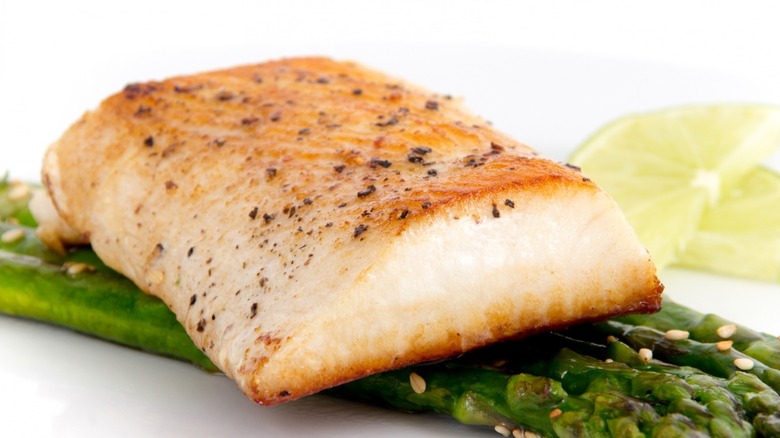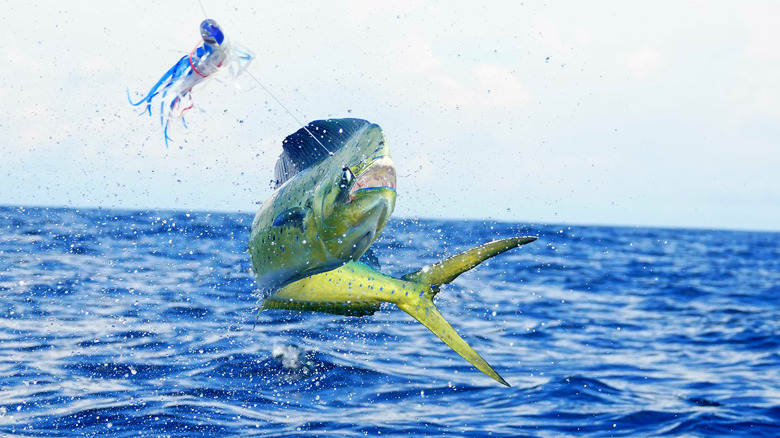Here's How Mahi Mahi Got Its Name
Whether fresh off the grill, pan-seared with vegetables, or stuffed into a tortilla with salsa, mahi mahi is a prized fish for many seafood lovers around the world. Known for its mild, swordfish-like flavor and for being one of the more sustainable seafood options on the market, the tropical fish is a very common fixture at both beachside taco joints and upscale waterfront restaurants.
In fact, you may have encountered mahi mahi on a menu without even realizing it. According to Florida Museum, the tropical fish is known by many names. In Latin America, it's named "dorado," which translates to golden, a reference to its shimmery-colored scales. In Japan, it's called shiira. In Italy, goes by lampuga. And throughout a good portion of the English-speaking world, it's long been known as ... dolphin fish. Yup. But don't worry, there's absolutely zero relation between the green-and-blue scaled fish and the squealing marine mammal. According to Seafood Source, the fish earned the "dolphin" nickname when people noticed its tendency to swim and leap through the surface in front of boats in the same way that actual dolphins do.
Of course, despite its many aliases and the fact that the fish is found throughout tropical waters all over the globe (per NOAA Fisheries), in the U.S., most people associate it with its Hawaiian name: mahi mahi. But where exactly did this unique moniker come from?
Mahi is the Hawaiian word for 'strong'
Just as Hawaii's state fish is famously named after the Hawaiian phrase for "triggerfish with pig snout" — humuhumunukunukuapua'a — mahi mahi earned its moniker thanks to its defining characteristic: its strength. According to Food Network, "mahi" is the Hawaiian word for "strong;" it became associated with this fish because of its ability to swim incredible distances. Per the Smithsonian, a typical mahi mahi fish can swim at speeds up to 40 miles-per-hour and travel up to 1,864 miles in a single month. (For the record, they're able to keep up this workout by eating 5.6 % of their body weight per day, so they're basically the Olympians of the sea.) As for the repetition in the name "mahi mahi," the University of Michigan explains that it's a form of reduplication, a linguistic process whereby a single word is repeated to convey new meaning, usually for emphasis. In this case, the fish isn't just strong, it's extra strong.
Although there's no confirmation on when the term "mahi mahi" became popular outside Hawaii (and in many parts of the world today, "dolphin fish" remains common), per Tastylicious, many U.S. restaurants adopted the name around the 1980s to prevent confusion and assure diners they weren't eating Flipper tacos.
Whatever name you choose to call it, mahi mahi makes for a delicious, lean dinner. And if you're looking for an easy way to get acquainted with this fish, Mashed has you covered with this simple mahi mahi recipe.

